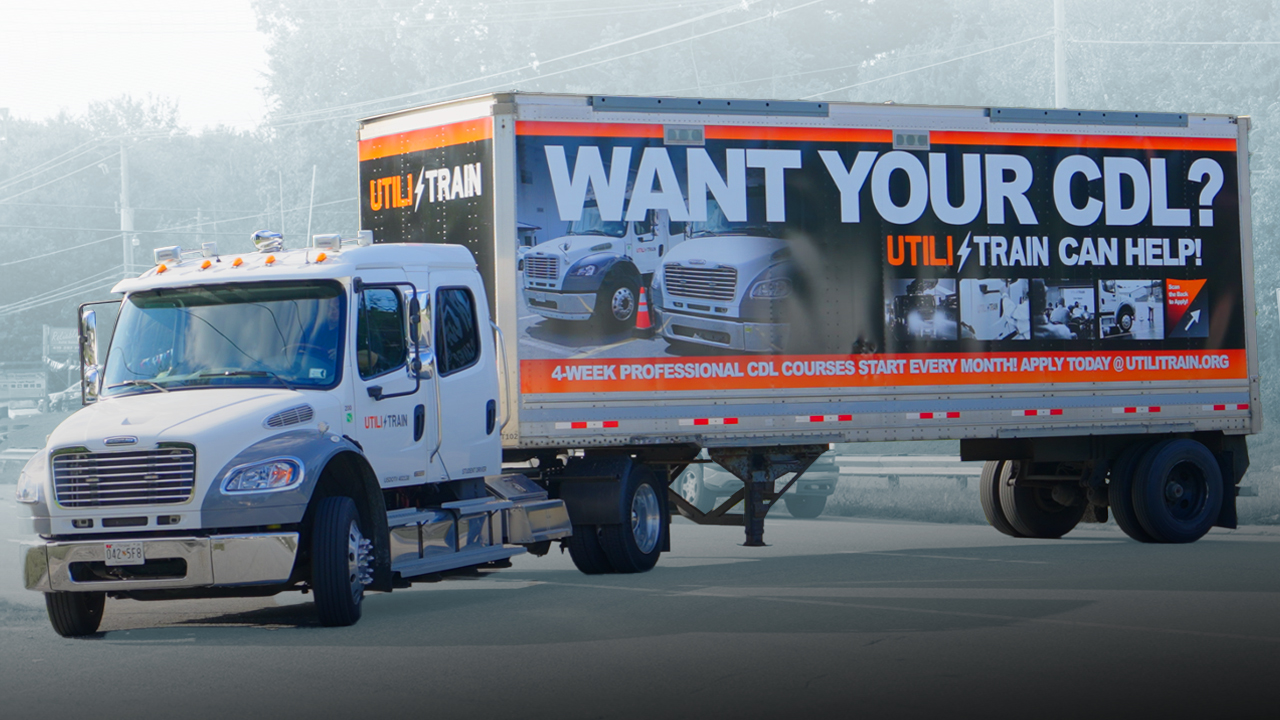
At Utilitrain, we believe a CDL is more than a license — it’s a gateway to meaningful work, solid wages, and career mobility. You’ll complete classroom instruction and behind-the-wheel training, meet regulatory standards, and emerge ready to fill driving roles that play a critical part in infrastructure, logistics, construction, utilities and more.
Once you’ve earned your CDL, especially in the Mid-Atlantic (Maryland, Delaware, Virginia, Pennsylvania and surrounding states), the job market opens up in several directions.
Here are some of the job tracks you could aim for after your CDL, along with what they look like:
1. Utility / Power & Construction Driver
You might drive trucks for utility contractors, construction firms, or maintenance crews. This could include hauling material or equipment to work sites, supporting overhead/underground line crews, moving utility trailers, or driving bucket trucks. These roles often combine driving with hands-on support of field crews. For example, companies in the Mid-Atlantic hire fuel and lube truck drivers with a CDL to service heavy equipment and construction sites. Zippia
2. Local or Regional Freight & Logistics Driver
With your CDL you can drive for carriers that operate within the region. Local jobs mean you’re home nightly or frequently; regional means a larger radius but still working “close to home.” According to job listings around Baltimore, CDL-A regional drivers earn through to weekly pay ranges of $1,400-$1,650 (~$72,800-$85,800/yr) in the Mid-Atlantic. Indeed+1
3. Specialized Hauling / Heavy Equipment Transport
Some CDL holders move oversized/over-weight loads: heavy machinery, transformers, utility components. One Mid-Atlantic job posting shows heavy-haul trailer operator roles paying up to ~$40/hour for heavy equipment transport. Startup Jobs
4. Local Service / Maintenance Fleet Driver
You could drive service vehicles, equipment trucks, or support fleets for utility, environmental, or municipal services. For example: highway sweeper driver/operator positions needing CDL B in Chesapeake, VA, start around $20–$22/hour. Zippia
5. Entry-Level Driver Roles as a Stepping Stone
Even if you’re new, you can find roles where your CDL puts you ahead. Jobs that may need manual skills, willingness to learn, and can lead to more advanced driving positions. E.g., in Maryland a CDL B driver earning ~$25/hour as a stepping-stone. MD Labor
When you complete the Utilitrain CDL Training program, you’re unlocking multiple career lanes. Whether you drive for utility support, regional freight, heavy equipment transport, or local service fleets — the Mid-Atlantic region gives you real options. It’s not just about a license. It’s about stepping into a role that matters, getting paid to build your career, and choosing how you move forward.